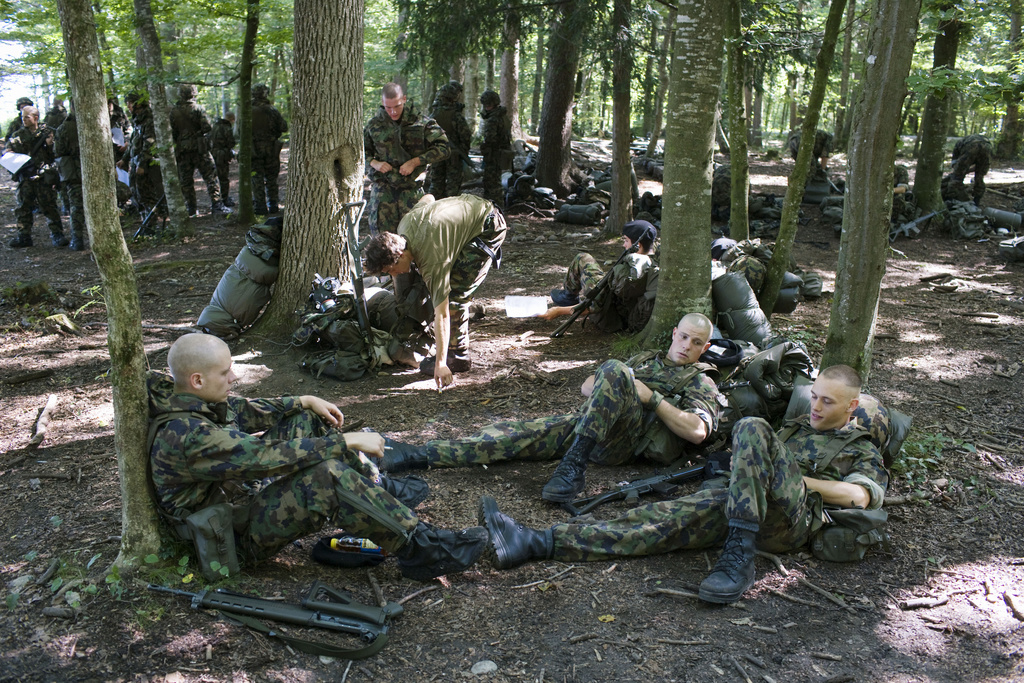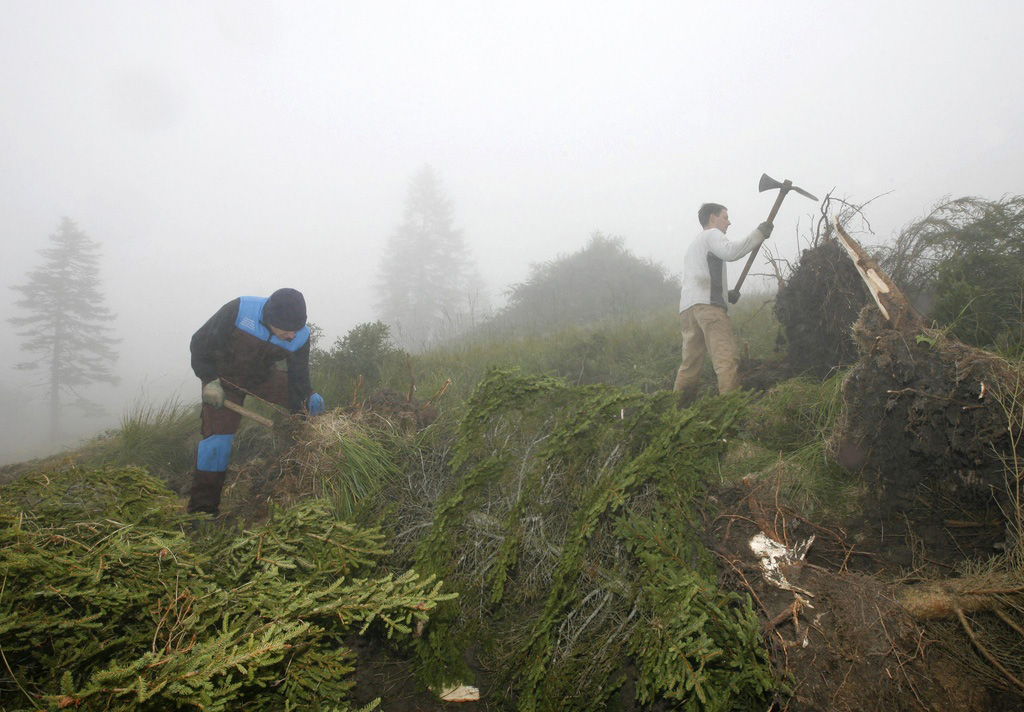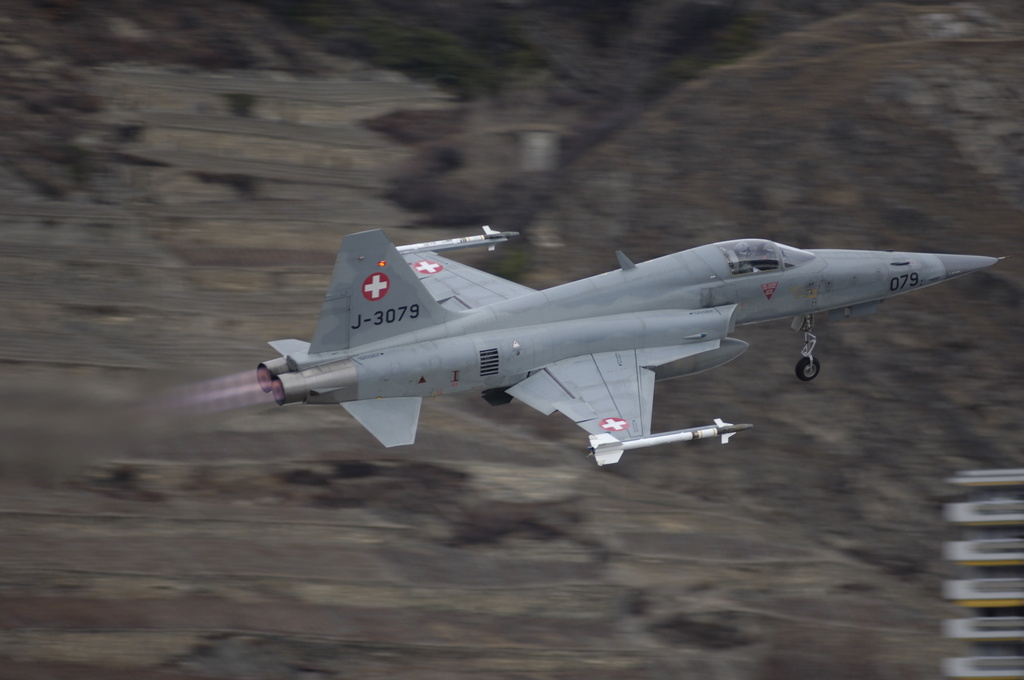Swiss army loses its bearings

Should Switzerland maintain a small professional army, or continue to expect all male citizens to serve? Politicians disagree over possible threats to the country.
The lack of clarity about the future of the army is currently casting its shadow on parliamentary debates about the basically uncontroversial 2010 armaments programme, which envisages a partial renewal of the aged air fleet.
Defence Minister Ueli Maurer of the rightwing Swiss People’s Party said in spring 2009 that he wanted to make the Swiss army “the best in the world”.
But reality soon caught up with him. A decision about the procurement of new fighter jets has been postponed until after 2015, despite the fact that the air force has been warning repeatedly that without the new planes Switzerland’s sovereignty over its airspace cannot be guaranteed.
Maurer has been told he must amend the recently published army report – an overview of the threats and the way the army is to be organised. The Senate security committee criticised the report for not giving sufficient priority to possible dangers and threats.
The report did not say whether Switzerland wanted to “consume or help shape” European security policy, Bruno Frick, chairman of the Senate security committee told parliament. Neutrality was cited almost “like a mantra”, but the report did not consider how it might develop in the future.
Contradictory demands
Maurer must now work out alternative scenarios on the issues of troop strength and the direction the army should take, and tackle the question of how Switzerland intends to fit in with the overall scheme of international security.
Switzerland has for years found itself “blocked between two positions” in its security policy, Kurt Spillmann, former director of the Centre of Security Studies and Conflict Research at the Federal Institute of Technology in Zurich, told swissinfo.ch.
“One side wants to join the European security community, whether as part of the European Security and Defence Policy (ESDP) or through cooperation with Nato. The other alternative would be to create a genuinely autonomous defence capability, which is always being talked about, but which would cost at least twice as much as the current army.”
But in practice current policy simply continues with the “traditional concept” and fails to “analyse the consequences of the end of the Cold War, and the resulting political and strategic consequences”, says Spillmann.
Lack of direction
Against this backdrop parliament, now meeting in the winter session, is grappling with the 2010 armaments programme.
“No decision can be taken about a proper armaments programme, because we don’t know the threats,” Corina Eichenberger-Walther of the centre-right Radical party, told the House of Representatives.
Ursula Haller of the centre-right Conservative Democratic Party commented that there was a palpable “lack of direction“.
The Senate, unlike the House of Representatives, wants better structures for helicopter pilot training, and in exchange is prepared to have fewer new trucks.
Even after detailed debates, the two houses have so far been unable to agree on a solution, although the difference in cost between the two alternatives is only SFr64 million ($64.75 million).
Contrasting calls
While politicians from the centre-right parties and moderate Social Democrats want to make the army much smaller, to reform it and give it a more international orientation, radical Social Democrats, Greens and pacifists want to abolish the army completely.
For their part, rightwing conservatives criticise what they see as the gradual weakening and internationalisation of the army. They want to see a stronger army in its traditional form, in which all Swiss men have an obligation to serve – the so-called militia army.
The Giardino group, which claims to have several retired high ranking officers among its members, issued a manifesto in September in which it said the army was not standing on the “brink of the abyss”, but had already fallen over the edge, and was a “field of ruins”. The group plans to launch a popular initiative calling for a fixed percentage of the country’s gross domestic product to be used for national defence.
The rightwing Swiss People’s Party also has clear ideas about the future of the army.
“The policy of orientating the army in the direction of international cooperation (Nato and European Union), which has been followed step by step over the past 15 years, must be abandoned,” the party said in response to the government’s report on the army.
In a position paper it said it supported “a credible national defence and an effective army, which would ensure Switzerland’s sovereignty and neutrality”.
Who is the enemy?
“Basically the political convictions of the overwhelming majority are still the same as they were during the Cold War, if not in the Second World War,” said Spillmann.
“The idea of the reduit is still fixed in people’ heads [the Second World War stronghold in the heart of the country, to which the Swiss would have retreated and held at any price],“ says Spillmann.
“There is no enemy, that’s what people really have to realise. The government has already recognised this fact in its security and army report, but parliament is not ready to draw the political conclusions.”
Professor of security policy and conflict research and the Federal Institute of Technology, Zurich (ETHZ), until his retirement in 2002.
1987–1995 head of the military science department at the ETHZ. Founded the Center for Security Studies and Conflict Research (now the Center for Security Studies) at the ETHZ.
Has advised the government and parliament over security policy and the reorganisation of the militia army.
Swiss neutrality enjoys broad public support. It is seen as part of the cement which holds the country together.
The three main features of Swiss neutrality are: it was freely chosen; it is perpetual; it is armed.
That is why Switzerland has always aimed to keep its armed forces at a respectable level and why Swiss men are bound by the Constitution to perform military service.
The Swiss armed forces can only be used for self defence.
Switzerland may not take part in international conflicts, and may not allow foreign troops passage.
Neutrality is an instrument of Swiss foriegn and security policy.
Neutrality is subject to clear rules under international law. Switzerland may not join any military alliance, such as Nato, although it is allowed to cooperate with Nato under the Partnership for Peace arrangement.
Switzerland has adapted its neutrality policy to international necessity and its own needs.
In the 1990s, at the end of the Cold War, Switzerland, like other neutral countries announced its willingness to support internationally backed sanctions to deal with violations of the law.
(Adapted from German by Julia Slater)

In compliance with the JTI standards
More: SWI swissinfo.ch certified by the Journalism Trust Initiative












You can find an overview of ongoing debates with our journalists here . Please join us!
If you want to start a conversation about a topic raised in this article or want to report factual errors, email us at english@swissinfo.ch.